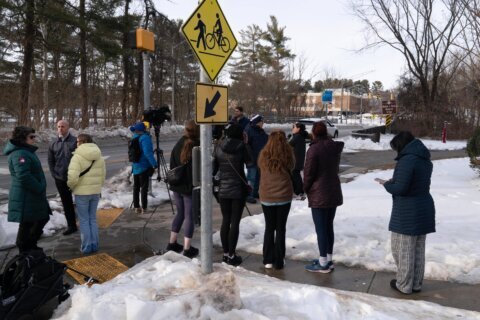Whether it’s extended school breaks or the COVID-related back-and-forth between virtual and in-person learning, some families have experienced a lot of adjustments recently.
And while it can be tough on children, one Northern Virginia psychiatrist has tips to help everyone cope.
“What parents and kids need to understand is that this transitional period can be difficult. It can be a challenge with adjustment,” said Dr. Asha Patton-Smith, a child and adolescent psychiatrist with Kaiser Permanente in Northern Virginia.
Patton-Smith noted that parents helping children pivot also may be experiencing their own situational changes, such as shifting between working from home to working in-person.
So as much as possible, she said, parents need to work with kids to create and maintain day-to-day structure.
“Trying to get up at a certain time, making sure you’re trying to at least eat dinner or one family meal together, making sure there’s a set bed time — are all things that can help with this transitional period until we can get over this wave and hopefully move forward with moving beyond the pandemic,” Patton-Smith said.
A small study recently published by the Journal of the American Medical Association finds more parents reported signs of behavioral issues among children between January and May 2021, when most kids were in remote learning.
“They were just categorized as more disruptive,” Patton-Smith said. “So what we look at that as is — kids having difficulty with listening, sometimes being easily frustrated, irritable, at times being oppositional. And just overall having difficulty in following directions.”
Now, as society navigates its way through the latest wave of pandemic-related adjustments, Patton-Smith wants parents to pay close attention to what’s happening with kids — and what’s going on in their environments.
“If they see changes in their child’s behavior, they really need to clue in with the school, with teachers and or with medical or mental health professionals if needed,” she said.
Changes in behavior would be any difference in what children are usually doing. If, for example, they seem more isolated or more irritable.
Younger kids might seem to have regressed by being clingy or having challenges with separation. They might be experiencing unexplained headaches or stomach aches or not want to leave the house. With older kids, behavioral changes can be more irritability, or being more oppositional.
“Any of these behaviors, if they’re any different or escalated, you need to check in first with your kid. And then after that, you need to monitor what’s going on in the school and reach out for help if needed,” Patton-Smith advised.








